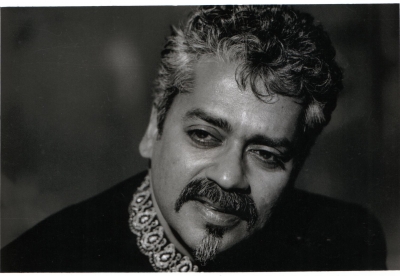Bending genres, the Hariharan way
By IANS | Published: June 6, 2020 06:57 PM2020-06-06T18:57:24+5:302020-06-06T19:10:19+5:30
As the only Indian musician to be part of the special music video created during the lockdown, 'I am ...

Bending genres, the Hariharan way
As the only Indian musician to be part of the special music video created during the lockdown, 'I am Standing With You', which witnessed 170 music from six continents come together in support of the United Nations Foundations' 'COVID-19 Solidarity Response Fund for the WHO', Hariharan says it was completely his kind of song soulful.
"I fell in love hearing the rough cut that was sent for approval. The whole exercise was so professionally conducted down to the last detail. Then came the video which I shot at home with my son Karan. Again, a very interesting experience. When the full video of the song came back, it was simply mind-blowing. I feel very privileged to be a part of the song which boasts of an impeccable track, arrangement, music, direction and lyrics," he told .
A recipient of Padma Shri, Hariharan, who has to his credit 500 Tamil and nearly 200 Hindi songs, besides 30 ghazal albums, said that 'I'm Standing With You' may have been in English, with 160 music from the Texas Medical Symphony, but through his Indian aalaps, he was elated to represent the country through his voice.
"Hearing the song, one is bound to be bowled over by the diverse voices that bring with them a unity in harmony. The musical arrangement by Sharon Farber does full justice to the timeless lyrics penned by Dianne Warren. The project has award-winning creator/director Gev Miron lending his magical touch," he said.
With parents as Carnatic music, Hariharan credits his mother for his consistent hunger to explore across genres. Adding that she always encouraged him to learn Hindustani classical music and ghazals, the singer said, "It is her open-mindedness and her ability to hold my hand in every new quest that has made me who I am today. She loved good music irrespective of genre, a quality she imbibed in me. She taught me that true music touches your soul, and to sing all genres and sing it right."
Talk to him about his creation of a new genre 'Urdu Blues', which he started in the year 2000 with Kaash, and the singer said, "Believe me, that is a whole different world in itself. Considering that each form of music influences the other, the same goes with ghazals and blues. The blues' scale suits ghazals well. When you connect both, what emerges is an incredibly vast and beautiful musical space. Longing and pain being central in both forms; lyrically, the fluidity of ghazals and blues music comes together effortlessly."
He added, "Urdu Blues speaks about relationships, love and freedom. It is liberating, exhilarating and igniting therefore loved by both Indian classical buffs and youngsters alike."
Stressing that he has always experimented, but never done that consciously, the singer said, "When you are one with your music, you have no choice but to evolve with time. Every artiste spends a lifetime developing his artistic signature that makes him unique, and this is possible only when you push boundaries.
"As a musician, you constantly challenge yourself, display a more developed ear for tone, groove and melody. When you consider yourself a student at all points in time, you feel thrilled by the sound and energy of fusion and when you hear some really great notes they tend to take you on a confounding excursion into the outer realms of harmony, and you approach music from an entirely different perspective."
For someone who has sung Indie pop, ghazals, bhajans and been a playback singer, he says that he never forgets that his roots are in Carnatic music and ghazals.
"My mother Alamelu Mani taught me Carnatic music and I learnt ghazal from Ustad Ghulam Mustafa Khan while Mehdi Hasan saab was my soul guru. Ghazals are what I sing most of the time. In fact at one time, I became a recluse, locking myself up with just one friend and soul mate my ghazals," he said.
Growing up on 'Abba', 'The Beatles' and sporting long hair and torn jeans in the 1970s, Hariharan, who used to love singing Richie Havens, may not have any formal training in western, but singing in school gave him much exposure.
"Now let's not forget that I am essentially a Bambaiya. I sing English like an Indian. That is the same principle we have in Colonial Cousins. I sang it as an Indian and he sang it as Lesle. He sounds American, of course (laughs). The body language, the emotions, they're essentially Indian," the singer said.
Believing that art and music appreciation should be made compulsory for school students, he said that not only do they amplify human connections, but also helps children express their emotions.
"Music and visual arts are crucial to develop critical thinking skills in children and can help them with the rest of the curriculum. Of course, all students may not become music, but then, all of them don't become mathematic or scientists either, right." He asked.
At a time when albums have become a thing of the past and singles rule, Hariharan, who has 150 albums to his credit in different genres, points that they (albums) are like milestones.
"They are a trove of memory. When you play an album, it is easy to get transported to the era it was made in... Online lacks that nostalgia. I really miss the physical feel of the albums, the marks of time left on it....those yellowish imprints. Digital just kills everything. However, it is only about singles now and that is the only way forward. Considering record companies hardly do any marketing now, most artists have now formed their own labels to release singles. It's only practical. An album is a dream now," he said.
( With inputs from IANS )
Open in app